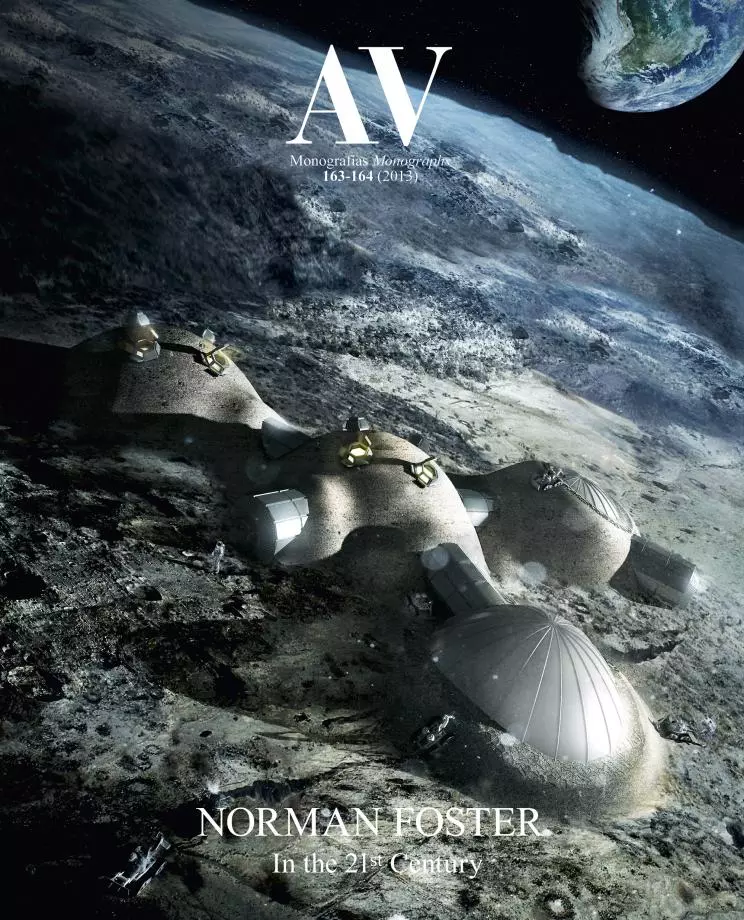Queen Alia International Airport, Amman
Norman Foster- Typologies Infraestructure Airport
- Date 2005 - 2013
- City Amman
- Country Jordan
- Photographer Nigel Young
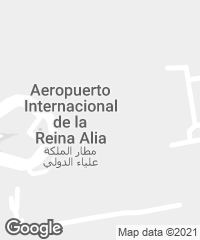

Queen Alia International Airport continues the practice’s explorations of the airport terminal as a building type and sets out a vision for an environmentally sensitive, regionally apt, airport architecture. Designed to serve as the main gateway to Amman – one of the oldest continually inhabited cities in the world – its design resonates with a sense of place and local culture. Strategically the new terminal secures Amman’s position as the main hub for the Levant Region. Logistically, it allows the airport to grow by 6 per cent per annum for the next 25 years, increasing its capacity from 3 million to 12.8 million passengers per annum by 2030.
In response to local building expertise and Amman’s climate, where summer temperatures vary markedly between daytime and night time, the building is constructed entirely from concrete, the high thermal mass of the material providing passive environmental control. The tessellated roof canopy comprises a series of shallow concrete domes, which extend to shade the facades. To enable seamless future expansion, each dome is a modular unit. The domes branch out from the supporting columns like the leaves of a desert palm and daylight floods the concourse through split beams at the column junctions. Echoing the veins of a leaf, a geometric pattern based on traditional Islamic forms is applied to each exposed soffit. In the building’s interior the vegetal geometric patterns are repeated, with teardrop-shaped skylights and a mixture of concrete with local gravel to achieve a sand tone that creates a visual continuity between the airport lobby and the landscape.
The terminal is glazed on all sides to open up long views to the aircraft on the apron and aid orientation. Two piers of departure gates run along either side of the central building, which contains the main processing areas and shops, lounges and restaurants. Between these volumes, open-air courtyards draw on vernacular Arabic architecture and contribute to the terminal’s environmental strategy: the plants and trees help to filter pollution and pre-condition the air before it is drawn into the air handling system. In celebration of the tradition for family groups to congregate at the airport, the forecourt has been enlarged to create a landscaped plaza with seating, shaded by trees, where people can gather to bid farewell or welcome returning travellers.


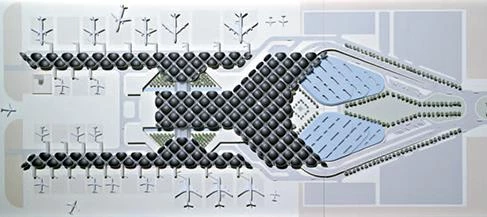


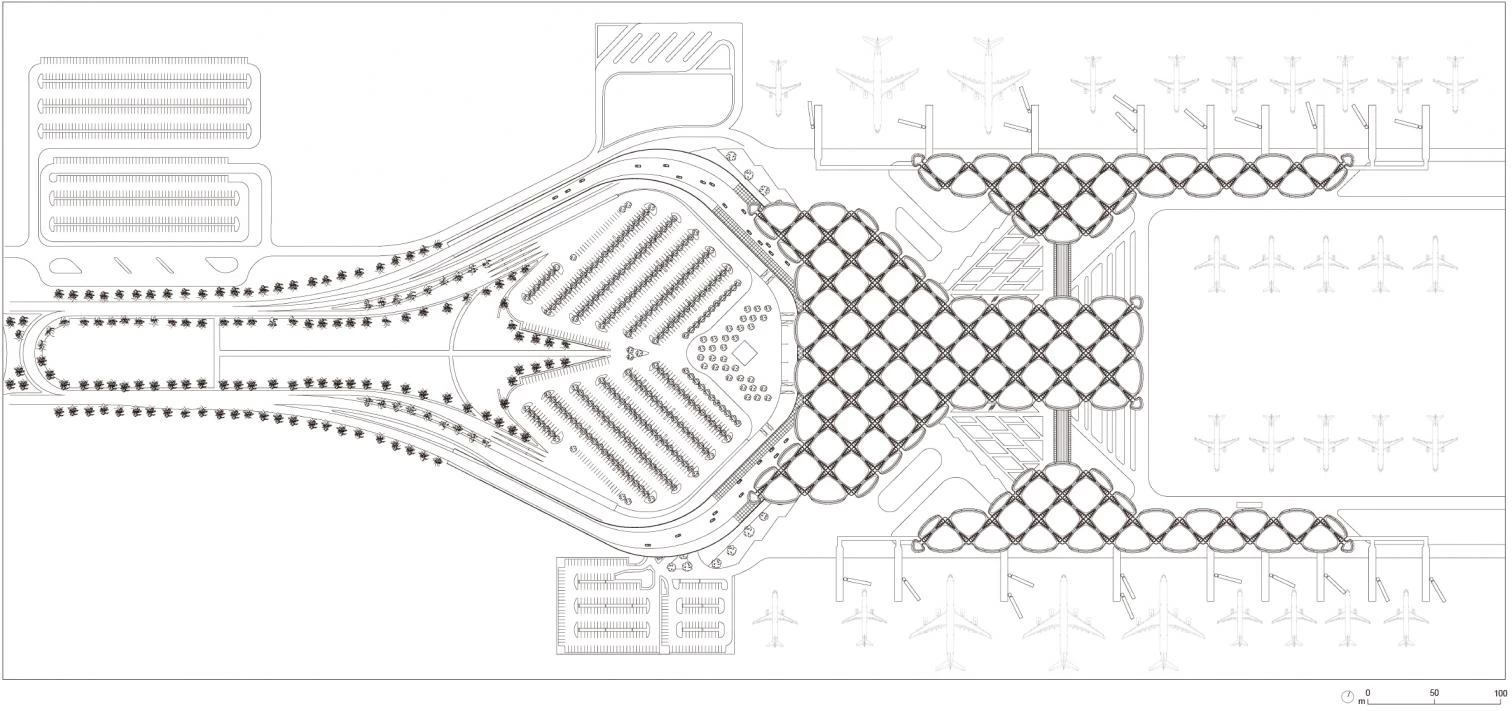



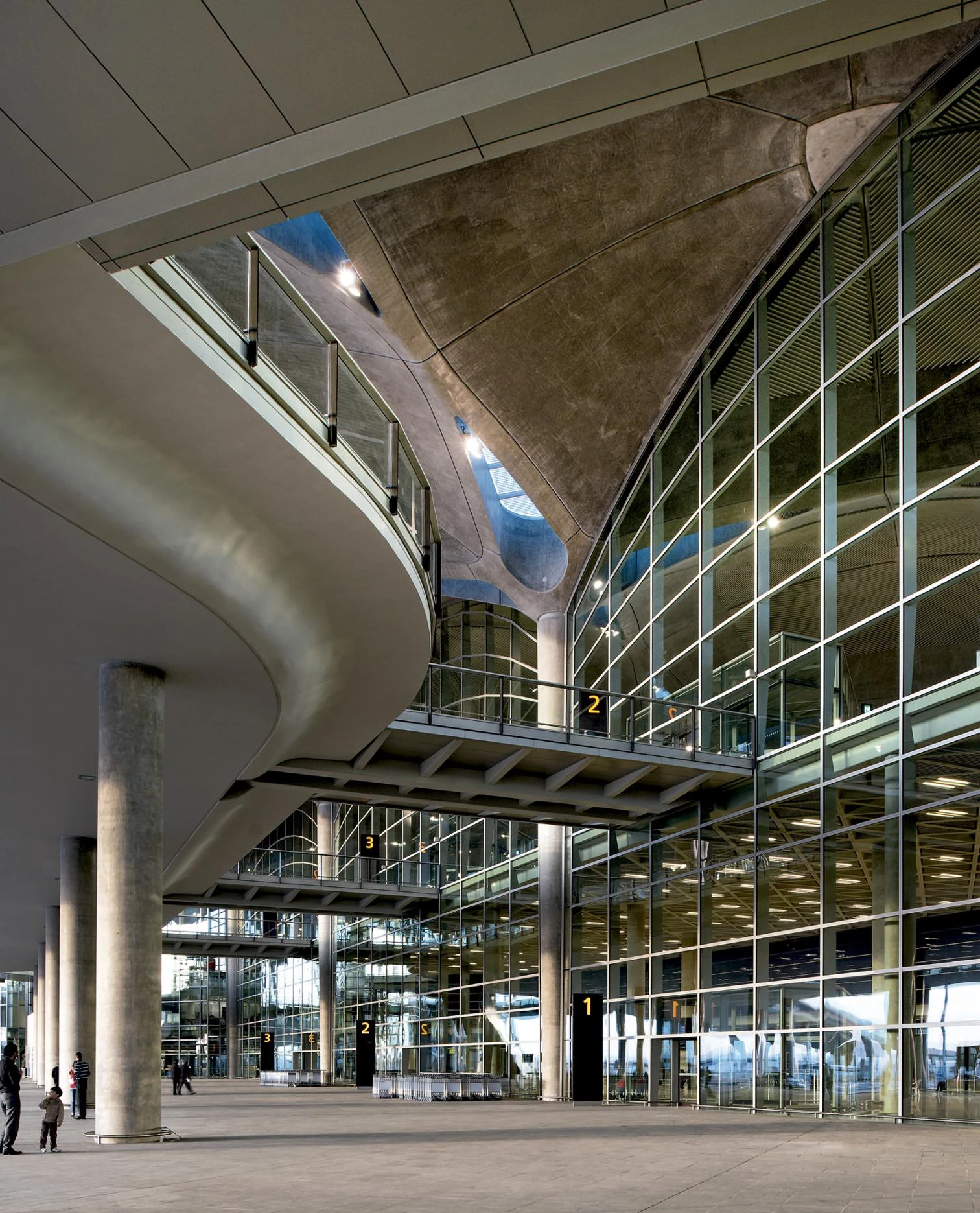

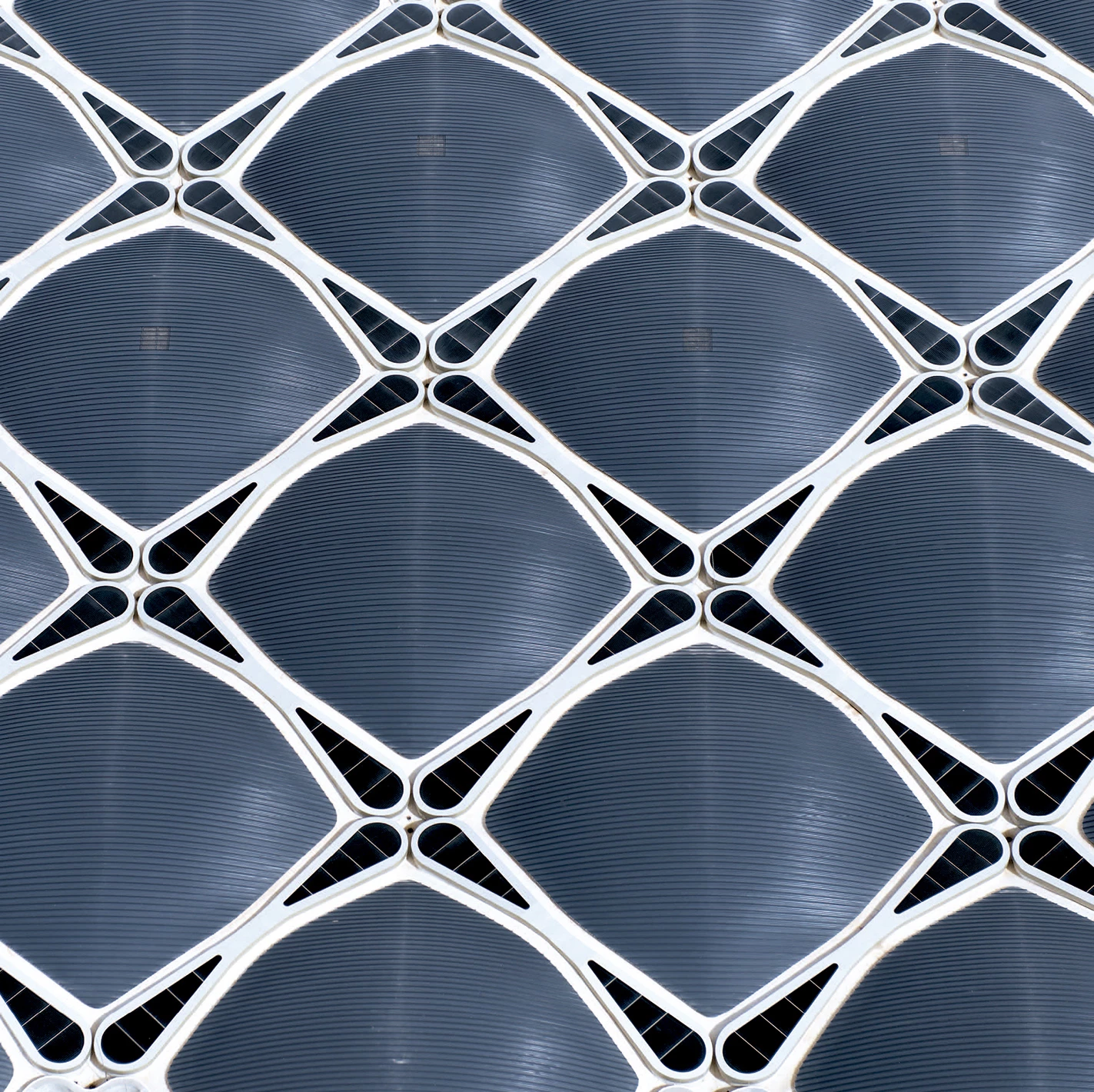
Cliente Client
Airport International Group, The Hashemite Kingdom of Jordan Ministry of Trans, Joannou & Paraskevaides (Overseas) Ltd, J&P-AVAX S.A., Airport International Group P.S.C
Arquitecto Architect
Foster + Partners
Colaboradores Collaborators
Maisam - Dar Al-Omran JV
Consultores Consultants
Buro Happold (estructura structural engineering); David Langdon (aparejador quantity surveyor); Buro Happold (instalaciones M+E engineering); Dar Al-Handasah (arquitecto paisajista landscape architect); World of Lights (iluminación lighting engineer); NACO, ADPi, Zuhair Fayez Partnership, Rahe Kraft
Contratista Contractor
Joannou & Paraskevaides (Overseas) Ltd, J&P-AVAX S.A.
Fotos Photos
Foster + Partners; Nigel Young / Foster + Partners



